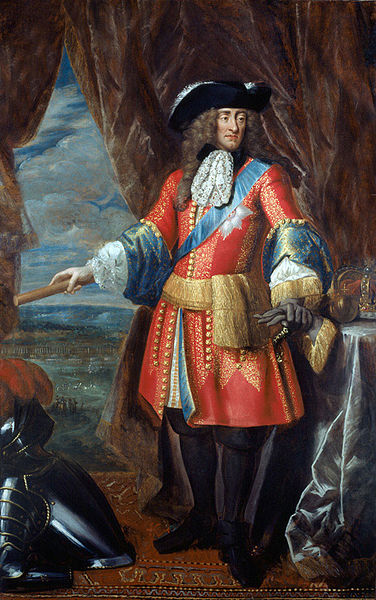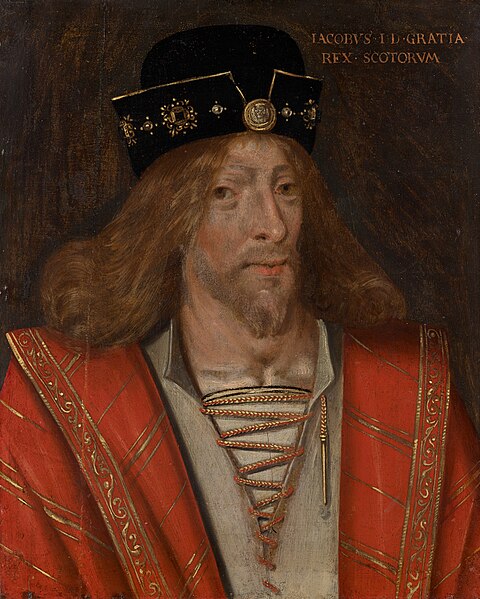Jacobitism was a political movement that supported the restoration of the senior line of the House of Stuart to the British throne. The name derives from the first name of James II of England, which is rendered in Latin as Jacobus. When James went into exile after the November 1688 Glorious Revolution, the Parliament of England decided that he had abandoned the English throne, which they offered to his Protestant daughter Mary II of England, and her husband William III. In April, the Scottish Convention held that James "forfeited" the throne of Scotland by his actions, listed in the Articles of Grievances.
James Francis Edward Stuart, Jacobite claimant between 1701 and 1766
'The True Law of Free Monarchies;' James VI and I's political tract formed the basis of Stuart ideology
Charles I, whose policies caused instability throughout his three kingdoms
James II, 1685, dressed in military uniform
The House of Stuart, originally spelled Stewart, was a royal house of Scotland, England, Ireland and later Great Britain. The family name comes from the office of High Steward of Scotland, which had been held by the family progenitor Walter fitz Alan. The name Stewart and variations had become established as a family name by the time of his grandson Walter Stewart. The first monarch of the Stewart line was Robert II, whose male-line descendants were kings and queens in Scotland from 1371, and of England, Ireland and Great Britain from 1603, until 1714. Mary, Queen of Scots, was brought up in France where she adopted the French spelling of the name Stuart.
Monument to the Royal Stuarts in St. Peter's Basilica – Work of Antonio Canova.
Armorial tablet of the Stewarts at Falkland Palace, Fife
Image: Robert II Stewart
Image: King James I of Scotland








